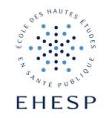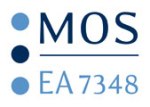Lille Economy Management (UMR CNRS 9221), IAE Lille, EHESP - IDM, I'EA 7348 MOS, UCL and IESEG
organize at
IAE Lille
on
21st June 2018
5th Health Marketing International Day
in patronage of:
Association Française du Marketing (AFM) and Association de Recherche Appliquée au Management des Organisations de Santé (ARAMOS),
and
in partnership with:
Fédération Hospitalière de France (FHF), Strat Adviser, Master 2 - MESS and Adem Santé.
Call for papers
Deadline for submissions: 21st April 2018
The research topic that will be addressed during 5th Health Marketing International Day
is:
Health Marketing in the digital era
The term « health marketing » defines a systematic application of marketing principles to the very broad and heterogeneous field of health care. Even though the emergence of health marketing is celebrated by many authors as a specific field of research investigation (Berry and Bendapudi, 2007 ; Lega, 2006 ; Stremersch, 2008), few of them actually defines it in a clear and comprehensive manner as it encompasses a diversity of realities including “life sciences” marketing (Stremersch & Van Dyck, 2009 ; Manchanda et alii, 2005), social marketing (Kotler & Zaltman, 1971; Hastings & Saren, 2003) and health care marketing (Zaltman & Vertinsky, 1971 ; Berry & Bendapudi, 2007 ; Latham, 2004 ; Smith, 2011).
There are important differences between the contexts of consumption and the medical contexts (Kahn and alii, 1997). Some specifics may justify the adaptation of certain fundamentals of the marketing doctrine. According to Stremersch (2008), health marketing is not a new paradigm but rather a new research field with its own specifics, strictly related to its application. A question remains, as the mechanisms of consumption are not the same: the state of patient is different from the one of a traditional consumer, the players do not share the same logic and the markets function differently at many levels, health is not a product but rather a state or a process either determined or uncertain in which psychology matters a lot and that values ethics, compassion, empathy and solidarity. In that context, Kahn et alii (1997) show that traditional constructs such as implication, affect, stress, uncertainty and satisfaction take all new meanings that are not transposable; the decision process is altered and leaves no room for comprise. Increasing the patients’ level of implication can augment their level of stress, while in a context of complex decision-making, these patients often rely on their feelings or emotions as an anchoring criteria (Kahn et alii, 1997). |
The emergence of the digital era in the health sector also modified drastically the behaviors and strategies of a variety of players by creating multiple spaces of cooperation and co-construction of values. The frontiers and separations that have kept the different players away from each other for decades are going down and new systems of cooperation see the day of light: the hospital takes interest in public health, the pharmaceutical industry gets involved with the patients and participates to prevention, the patient becomes a central player… New players are also entering the field: La Poste announced to 2018 Las Vegas CES the creation of a “digital health record booklet (LaPoste eSanté) paired to a digital safe meant to store health results (Digiposte). In june 2017, La Poste took over the management of Asten santé, one of the main French lead players of the home care/nursing market. The Silver economy is taking off in this digital era with and represents a market generating approximatively a 100 billion euros turnover… Because this revolution is barely tackled by researchers, the health Marketing International Day offers the opportunity to stimulate more discussion a research in the field.
- Berry, L.L. and Bendapudi N. (2007) ‘Health care: a fertile field for service research’, Journal of Service Research, 10, 2, 111–122
-
Lega, F. (2006). Developing a marketing function in public healthcare systems: a framework for action. Health Policy, 78(2-3), 340-352
-
Stremersch S., (2008), “Health and Marketing: The Emergence of a New Field of Research”, International Journal of Research in Marketing, 25 (4), 229-233
-
Stremersch, S., & Van Dyck, W. (2009). Marketing of the Life Sciences: A New Framework and Research Agenda for a Nascent Field. Journal of Marketing, 73(4), 4-30
-
Manchanda P., Wittink D., Ching A., Cleanthous,P., Ding M., Dong X., & Xie, Y. (2005). “Understanding Firm, Physician and Consumer Choice Behavior in the Pharmaceutical Industry”. Marketing Letters, 16(3/4), 293-308
-
Kotler P, Zaltman G. (1971), “Social marketing: an approach to planned social change”. Journal of Marketing, 35, 3–12
-
Hastings, G., & Saren, M. (2003). The critical contribution of social marketing: Theory and application. Marketing Theory, 3(3), 305-322
-
Zaltman, G., & Vertinsky, I. (1971). Health Service Marketing: A Suggested Model. Journal of Marketing, 35(3), 19-27
-
Latham, S. R. (2004). Ethics in the Marketing of Medical Services. Mount Sinai Journal of Medicine, 71(4), 243-250
-
Smith A., (2011), Internal social marketing: lessons from the field of services marketing. In: Hastings, Gerard; Angus, Kathryn and Bryant, Carol eds. The Sage Handbook of Social Marketing. Sage, pp. 298–316
-
Kahn, B. E., Greenleaf, E., Irwin, J. R., Isen, A. M., Levin, I. P., Luce, M., &. Young, M. J. (1997). Examining Medical Decision Making from a Marketing Perspective. Marketing Letters, 8(3), 361-375
| |
 Introduction
Introduction






 Our partners
Our partners











